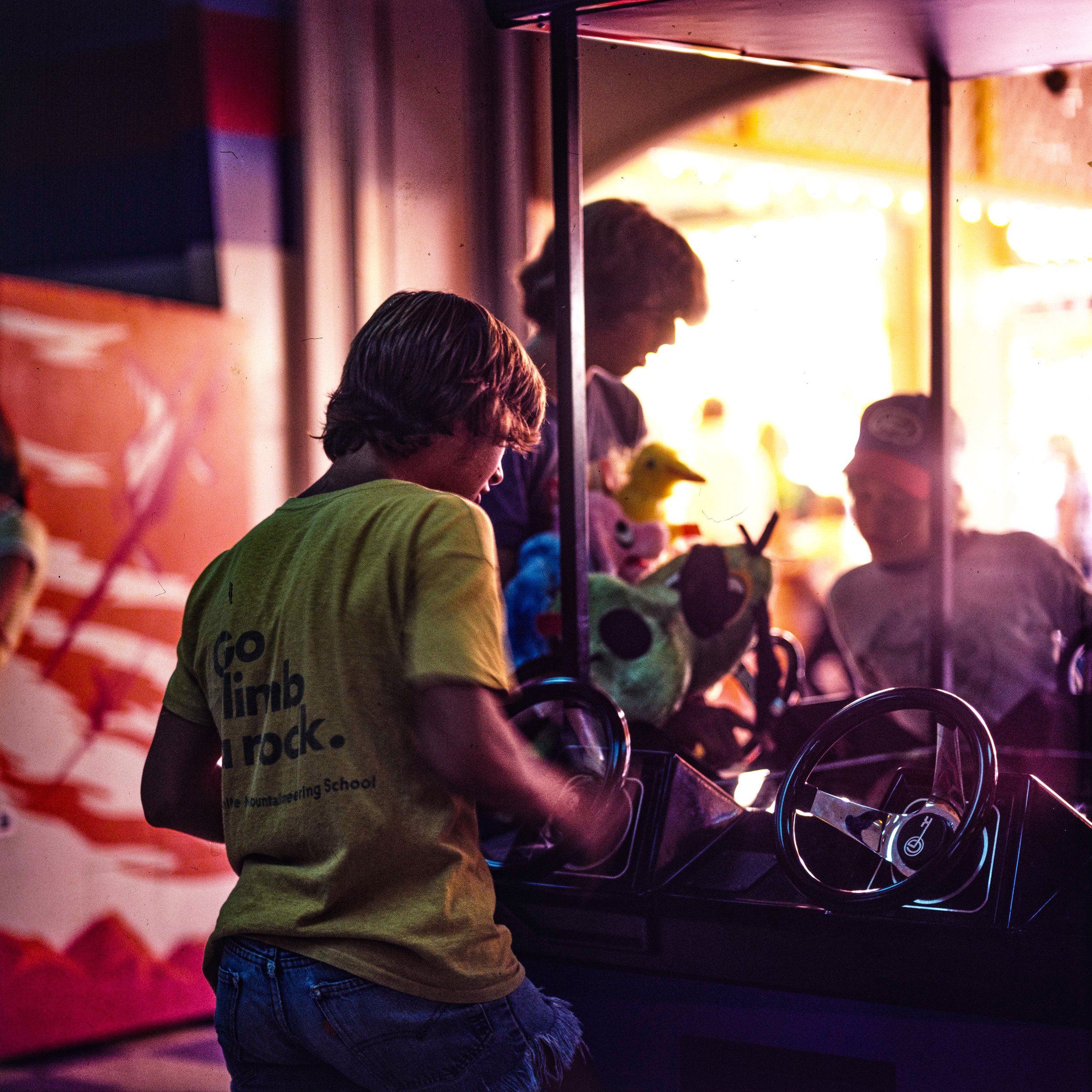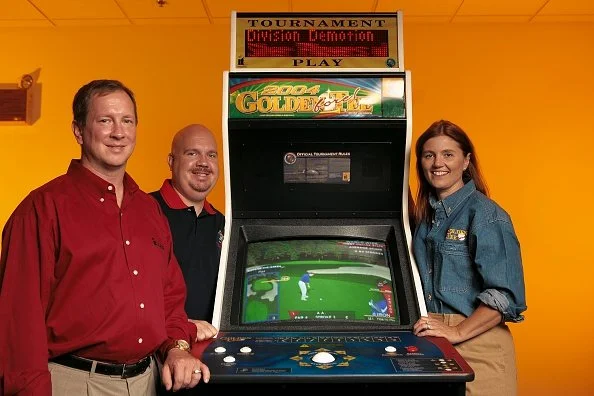VII. Redemption
Insert Coin to Continue
Nolan Bushnell at a Chuck E. Cheese location, which he founded in 1977 and franchised until it was sold to ShowBiz pizza in 1984.
As the video craze cooled off and arcades started shutting their doors, overseas producers like Nintendo and SEGA would enter the home market, further chipping away at the customer base. To counter this growing threat from home gaming systems, coin-op operators began reviving classic mechanical games like skee-ball and claw machines, offering unique experiences that couldn't be replicated in living rooms.
The industry also made conscious efforts to broaden their appeal by developing games and venues specifically targeted at younger players and families. Family entertainment centers (FECs) like ShowBiz Pizza and Chuck E. Cheese created welcoming environments where parents felt comfortable letting their children play. These venues combined arcade games with other attractions like animatronic shows, pizza and carnival-style redemption games. The redemption model proved particularly effective at encouraging repeat visits as children would eagerly return to earn more tickets they could exchange for prizes from the prize counter. This shift toward family-friendly entertainment helped coin-op reach new audiences while distancing itself from the somewhat seedy reputation that had plagued traditional arcades.
"The creation of something new is not accomplished by the intellect but by the play instinct.”
CARL JUNG
Two brothers count the tickets they won on a game during their visit to the Grand Arcade in Hinckley, Minnesota (1996).
While these redemption games ironically share some similarities with gambling devices — from their flashing lights and enticing sounds to the promise of winning prizes — they remain fundamentally different in one key aspect: They are games of skill rather than chance. This distinction is important as it means players, at least in theory, can improve their performance through practice rather than relying purely on luck.
Larger than life, these redemption games continue to gain popularity among audiences young and old alike. Meanwhile, modern FECs continue to evolve, expanding their offerings beyond just games, incorporating full-service bars, chef-driven menus and innovative entertainment options that encourage social interaction. These venues create spaces where friends and families can challenge each other in both classic arcade favorites and cutting-edge multiplayer experiences.

